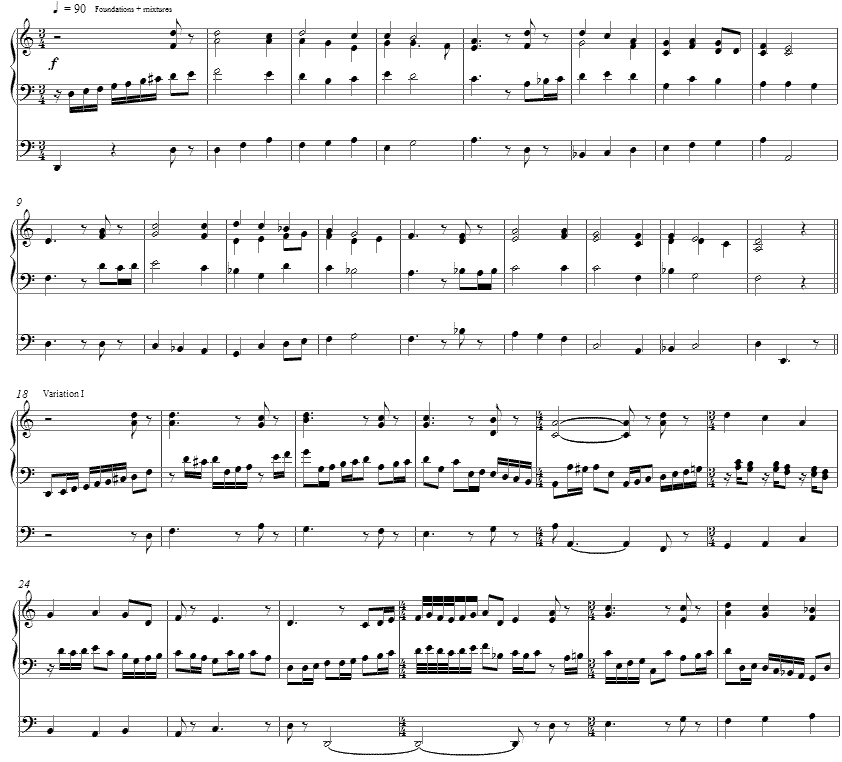Music and Texts of GARY BACHLUND
Vocal Music | Piano | Organ | Chamber Music | Orchestral | Articles and Commentary | Poems and Stories | Miscellany | FAQs
Chorale Variations on "Agincourt" - (2002)
for organ
The Agincourt hymn tune was originally a Latin hymn text set to an anonymously composed melody in 1415. The date is certain, as it was a "song of praise" -- the proper translation of the Greek, hymnos -- on the occasion of the Battle of Agincourt (Oct. 25, 1415), a decisive victory of the English over the French in the Hundred Years' War. The battle was a disaster for the French. The French constable, Charles I d'Albret, 12 other members of the nobility, some 1,500 knights, and about 4,500 men-at-arms were killed on the French side, while the English lost less than 450 men. It is said that the English had been led brilliantly by Henry, but that incoherent tactics of the French had also contributed greatly to their defeat.
The tune has been given various texts over centuries, beginning with the Latin original through to one of its more often used translations by Benjamin Webb (1819-1885), "O Love, How Deep How Broad, How High!" Other texts include one titled "God of our fathers, known of old" by Rudyard Kipling, 1897, as well as titles such as "Jehovah, my God, on Thy Help I Depend" (1912) and "O God, thy soldiers' great reward" which highlights the aspect of military victory. English composer John Dunstable (1385-1453) [ 1 ] is credited with influencing the transition between late medieval and early Renaissance music, and his Agincourt Hymn, a work for organ still often programmed, the hymn has attracted many interpreters of its melody and many poets to provide new texts.
This organ work is a set of chorale variations on the hymn tune itself. Each variation becomes a bit more insistent and triumphant, with the addition of large reeds to the pedal in a final declaration of the theme.
The score is available as a free PDF download, though any major commercial performance or recording of the work is prohibited without prior arrangement with the composer. Click on the graphic below for this organ score.
Chorale Variations on "Agincourt"
NOTES
[ 1 ] Dunstable was in the service of the Duke of Bedford, who was regent of France from 1422 to 1435 and military opponent of Joan of Arc. It may well be that the original hymn tune is his, as well as the work for organ now known best. What remains of his work today is about 60 works, including mass sections, motets, and secular songs.
